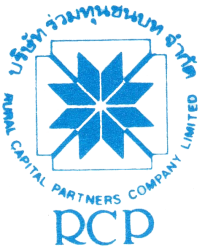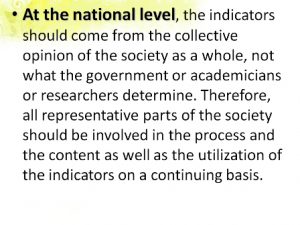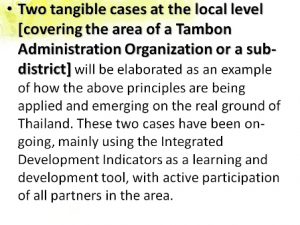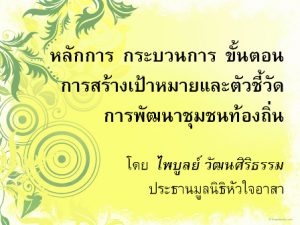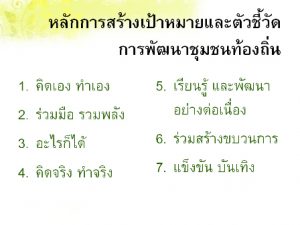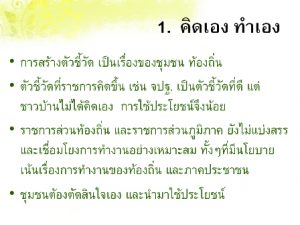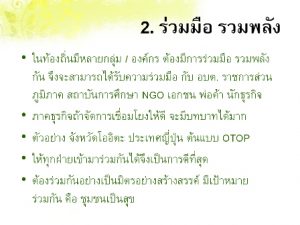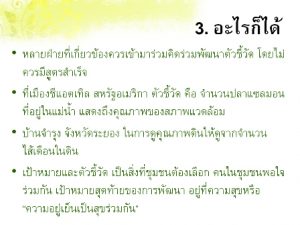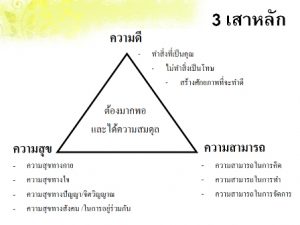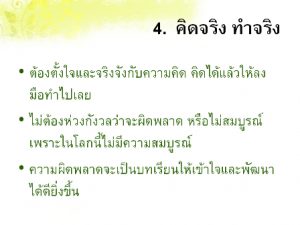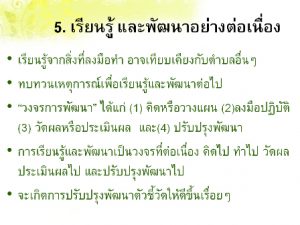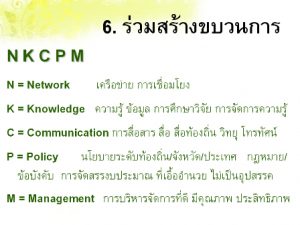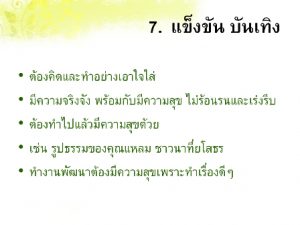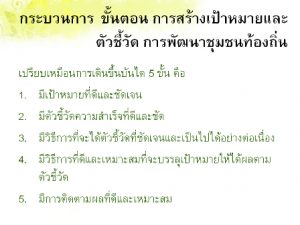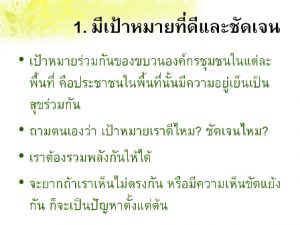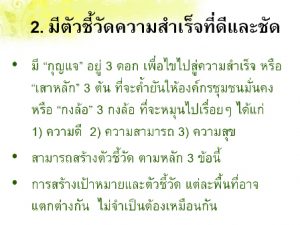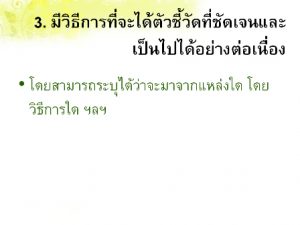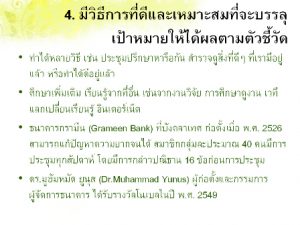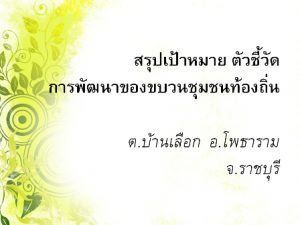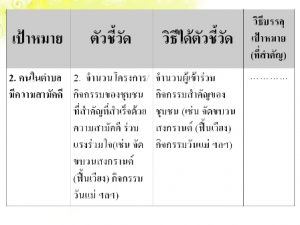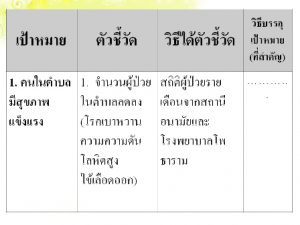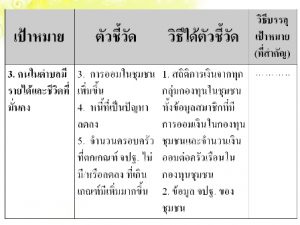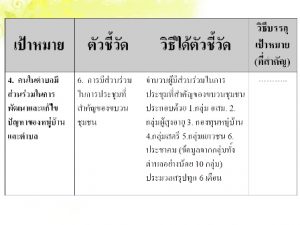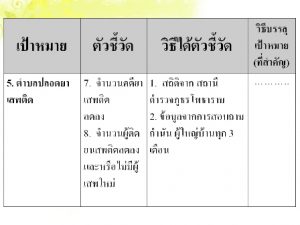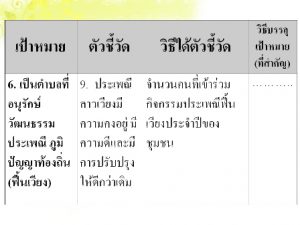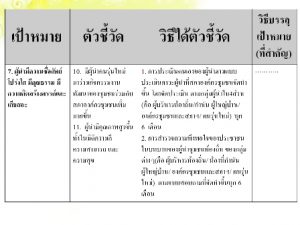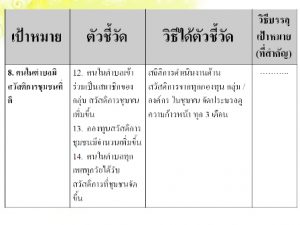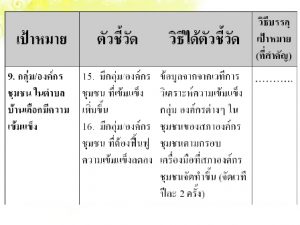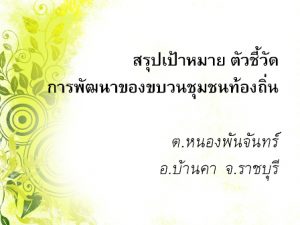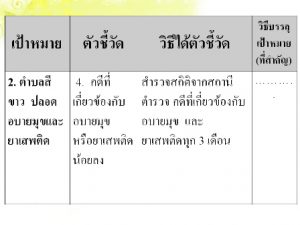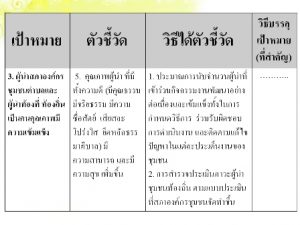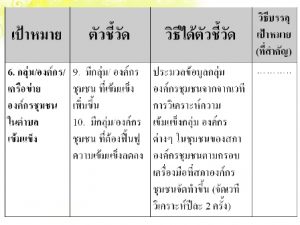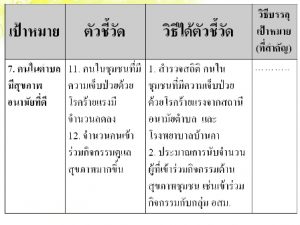Institutionalizing a City-wide Community-based Slum Upgrading Strategy: Thailand’s “Baan Mankong Programme” managed by the Community Organizations Development Institute (CODI)
(คำกล่าวในงาน “The 8th Cities Alliance Public Policy Forum” เมื่อวันที่ 7 พฤศจิกายน 2550 ณ โรงแรม Crowne Plaza Galleria กรุงมะนิลา ประเทศฟิลิปปินส์)
Speech by
H.E. Paiboon Wattanasiritham
Deputy Prime Minister
and Minister of Social Development and Human Security Security
Thailand
At the 8th Cities Alliance Public Policy Forum
5-7 November 2007
Manila, the Philippines
Excellencies, Ladies and Gentlemen,
It is a great honour to be addressing this high level gathering on “leveraging resources for livable cities”. Let me begin by focussing for a few moments on the key words, ‘resources’ and ‘livable cities’.
I believe that we are all in agreement that the urban poor have, for far too long, been seen merely as unwanted problems or things to be gotten rid of, rather than as vital ‘resources’, as necessary as expertise, capital and technology, for equitable and sustainable city development. For decades that kind of negative thinking has perverted much of our development theories and practices worldwide. As a consequence, so many top-down programmes of unsuitable and unsustainable solutions to poverty and slums have been imposed on the poor without any genuine consultation with the poor about their needs and priorities. When those ‘expert’-designed solutions failed to improve the living conditions of the poor, we have piously blamed the poor for not rising to the occasion, for being uncooperative, ungrateful and unworthy.
The other key words, ‘livable cities’, beg the question of livable for whom? At present most cities are reasonably comfortable places for those who are fairly well off and, very, very comfortable for the very rich. But for still very significant numbers of poor people, what most cities give are insecurity, squalor, illegality and a hand to mouth existence, with little hope for the future. If we are sincere in seeking livable cities for all, rich and poor, we are indeed urgently in need of effective ways on how to go about creating cities of hope for those who have been hitherto denied the opportunity and power to change their predicament, namely, the urban poor.
I am very happy to be able to introduce you to what we have been doing in Thailand to enable poor people and their communities to become important and active resources in city development rather than just unwanted dependents. I also want to show you that bringing poor communities into a self managed process pays big dividends for the authorities and the society and economy as a whole.
Currently Thailand has perhaps the largest government supported slum upgrading and tenure security programme in the region, the Baan Mankong or Secure Housing Programme (BMP). The BMP was launched by the Community Organizations Development Institute of Thailand (CODI) in 2003 to work with communities organized around their own savings groups. The BMP supports partnerships between communities and other actors because the Thai government has learned over decades that community-led city-wide upgrading is an effective and sustainable means of investing in its people to help them overcome their poverty and improve their living conditions. It has taken decades of learning to listen to the poor and the commitment of thousands of dedicated officials and hundreds of thousands of poor community members for this national paradigm shift to come about.
Indeed, the Thai ‘cities without slums’ approach, which is now being implemented throughout the country in 226 cities has been developed from many experiences in the past. It has emerged from questioning misperceptions as well as correcting mistakes and from learning about what works and what doesn’t. Like most Asian countries, we have had a long history of government-built public housing and government-planned slum upgrading in the 1980s which were carried out in competition with a very large and powerful commercial real estate sector. Those housing or upgrading projects were based on a supply-driven approach in which the government did all the thinking, all the planning, all the managing of the subsidy as well as all the building and allocation of the housing or services and facilities. Poor people were mere recipients of whatever the projects delivered. Some poor people were able to get into these supply-driven housing programmes but mostly only after great difficulty and long periods of waiting. On many occasions some poor families that obtained such housing, found themselves unable to meet their repayments or unsuited to ‘high rise’ housing or housing located at a greater distance from the city, so, after some time, they sold their rights and moved back to the slums.
The major shift in the way we developed better housing opportunities for the poor came in 1992 with a new way of working, using a Community Development Fund approach. At that time the Thai Government created an “Urban Poor Development Fund” to be managed by the Urban Community Development Office (UCDO) which became the model for CODI’s work today. The UCDO’s initial Urban Poor Development Fund of approximately US$ 36 million was used to support community savings and credit groups and federations. This landmark decision allowed all urban poor communities in the country to be active participants in solving their own housing problems and owners of their own development projects through their savings groups.
Community savings groups have proved to be far more effective in helping the poor out of debt and onto a more stable economic footing as well as in improving their settlements and housing. This was found to be particularly so when the savings groups were self-managed and networked with other community savings groups in their town or city so they could learn from one another. Community-managed savings groups bring members closer together to understand one another’s needs and abilities. Savings groups lift poor people out of isolation into community solidarity and collective empowerment. Once they have impacted on the pressing issues of people’s daily survival, savings groups begin to serve as a forum for community initiatives to improve other things at the household and community level.
In 2000 the UCDO was merged with the Rural Development Fund under the Ministry of Finance thus bridging the highly artificial division between rural and urban poverty. (After all it is the rural poor who have traditionally become the mass of the urban poor over the decades.) The newly created Community Organizations Development Institute (CODI) is now able to draw on the collaboration and mutual learning between poor rural and urban communities on a wide range of issues vital to their social empowerment and economic development. More recently, in 2002, CODI was more appropriately placed under the newly created Ministry of Social Development and Human Security. Under the present Government, I am responsible for this Ministry’s work and see CODI as a crucial mechanism for institutionalizing city-wide development, local empowerment and improved social justice in our country.
(I may be allowed to add that I did personally play a key role in the setting up of both UCDO and CODI, also being UCDO’s first Managing Director as well as CODI’s first chairperson. However, the fact that I am now in the Government and look after the Ministry of Social Development and Human Security which in turn oversees the work of CODI, was totally unplanned and unexpected.)
A very important outcome from this shift in approach is that all urban poor communities in the country can start organizing themselves and then linking into city-wide networks. These city-wide networks can then work with local authorities and other urban development actors and start planning and surveying, at a city-wide level, to change their insecure status, to redevelop their communities, to negotiate with government or private landlords and to propose long term lease or purchase of all slum land of the existing slum communities or any nearby vacant plots of land. In this way agreements can be reached which enable poor communities in each city to obtain secure collective land leasehold or ownership.
Once land agreements have been reached, community architects can begin to work with communities to help them plan their new housing projects on the land that they had been occupying or on newly identified and mutually acceptable land. Then CODI will pass on an infrastructure development budget and housing or land loans to communities. So in this way communities can manage their settlement upgrading and new housing construction all by themselves.
Since communities are working together to develop their economic status from zero into becoming fully legal housing project with members owning all their community land and infrastructure development together, we have found that most urban poor communities undergo significant positive changes that are a direct result of their mutual management of their own projects. Many communities go on to develop just and strong community organizations with welfare systems and income generation activities for their members through their own funds and other funds that may become available. Needless to say their relationships with society as a whole and with all related agencies are all considerably improved, once communities are treated as full and equal partners.
I think it is very important in this modern and increasingly precarious world in which we are living, that this new method of supporting people on the ground to become responsible and self-reliant actors and doers is adopted urgently. How else can we provide tools and support mechanisms so that all poor people in all the places in the country can be organized and enabled to initiate real solutions to their problems through their own choices and efforts? Can we really provide an alternative support system such that desperately poor people are not kept waiting too long for the merciful intervention of development agencies and governments which treat poor people as merely helpless incompetents, passive recipients, or lesser citizens.
CODI’s main strategies are to support and enhance the roles of community organizations, their networks and other local development mechanisms. In particular it promotes community financial institutions and community economy as the basic tools for community development. They have proven extremely effective in supporting community-led settlement and tenure upgrading and housing development. As I have mentioned earlier, its Baan Mankong Programme is its main vehicle for achieving city-wide upgrading.
Through the BMP, communities have been working on city-wide mapping of their settlements for development planning. Their plans now involve everything from land and environmental conditions, resources and debt management, and measures to boost the capacity of their communities. Through the BMP squatter communities are able to negotiate with landlords and state authorities to gain security of tenure or access to alternative land to upgrade their housing and settlements.
As of September 2007 the Baan Mankong Programme has conducted 495 projects in 226 cities and districts, in 69 (out of 76) provinces around the country. In the same period it has benefited 52,700 households in 980 communities. Infrastructure upgrading grants to the amount of US$ 46.9 million have been made. Additionally US$ 35.8 million in loans for land purchases and house construction have been granted to participating communities and households. A budget equivalent to about US$50 million has been allocated to CODI for fiscal year 2008 for the support of the BMP.
Some of you may ask why the Government of Thailand would have such a policy of directly investing in social development. These are my answers:
• We have found that investing in the poor collectively through savings groups enables the poor to solve their problems in a sustainable manner
• We have found that providing flexible finance to them generates their creativity and commitment to wider collective goals of benefit and urgent relevance to the society as a whole
• We have found that this investment brings good economic and social returns that go way beyond merely recovering costs
Therefore, city-wide community-based development is in our national interest. Most importantly it is an investment in the most precious resource of a country, its people. It brings millions of overlooked poor people, into the development process rather than leaving them in despair and alienation. On a financial level it leverages far more local financial resources to develop cities sustainably without foreign loans. Most importantly it brings poor, formerly excluded people, into the formal sector or social mainstream, so that they are protected by the legal system, rather than victimized by it.
Finally this people-centered model of development expands the state’s revenue base as well as its knowledge base for more socially and environmentally responsible planning. Planning through a socially inclusive process shares the benefits more equitably for all residents and results in more timely and cost-effective development of housing and infrastructure in cities and towns. I believe this is what all governments are seeking from national urban development for their citizens.
Thank you for your kind attention.
อ้างอิง
บันทึกนี้เขียนที่ GotoKnow โดย นาย ไพบูลย์ วัฒนศิริธรรม ใน ไพบูลย์ วัฒนศิริธรรม
เว็บไซต์ ต้นฉบับ https://www.gotoknow.org/posts/146344

